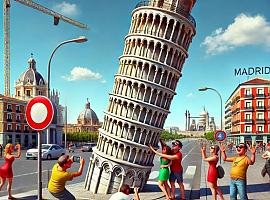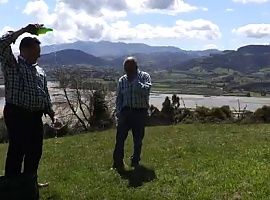Rock in Rio is back home. After 10 years, audiences will be able to quench their nostalgia for the event that was exported abroad and generated enormous international visibility for the city and country. Acclaimed also in Portugal and Spain, Rock in Rio has grown and fine-tuned its formula for success with an international production team. Today, with 26 years under its belt, its return promises many new things and assures an unforgettable experience for the public that made it famous. Scheduled for September 23, 24, 25 & 30 and October 1&2, 2011, the event will take place in Jacarepaguá, in the West zone of Rio de Janeiro, the same neighborhood where it debuted in 1985, in a geographically favorable venue: 150,000 m², with a natural pond as part of the landscape. The "Olympic Park City of Rock" corresponds to an area that will be a recreational park for athletes in the 2016 Olympics that the municipality of Rio de Janeiro is ceding and completing ahead of time.
The international prestige achieved by Rock in Rio is a result of this communication model that extends beyond the stage, and offers different opportunities for brands associated with the event; professional, personal and technological support for the artists; comfort; services; and products for the public at fair prices. Rock in Rio also assumes a commitment to the host cities and develops concrete initiatives with a social and environmental focus. Through the project "For a Better World" — launched in 2001, in the third edition of the event in Brazil — thousands of people in Brazil, Portugal and Spain have benefited from donations resulting from ticket sales and initiatives promoted by partners.
Rock in Rio is the largest music and entertainment event in all history, with nine editions held in Brazil, Portugal and Spain. The live festival has attracted more than 5 million people, who applauded, 656 bands. There has been more than 780 hours of music, broadcast to more than one billion TV viewers in 80 countries. Using music as a universal language, which unites people all around the world, Rock in Rio is a vehicle for communicating emotion.
The festival will take place this year on September 23, 24, 25 & 30 and October 1&2, at the Olympic Park City of Rock, in Barra da Tijuca, Rio de Janeiro.
For a Better World
For 10 years now, Rock in Rio has also taken up the responsibility to act as a communication vehicle for social-environmental causes through creating the project, For a Better World. In nine editions, thousands of people in Brazil, Portugal, Spain and several other countries have benefited from investments coming from ticket sales for the event and initiatives promoted by partners, totaling more than 5 million euros. Among the initiatives undertaken, more than 40,000 trees have been planted, and a school was built in Tanzania, as well as a health care facility in Maranhão. Rock in Rio has also provided public school education for 3,200 children, in Rio de Janeiro, installed 760 solar panels in public schools, in Lisbon and set up 14 sensory rooms in NGOs to assist children with mental disabilities and visual impairments. Apart from that, since 2006, Rock in Rio has committed itself to offset 100% of the CO2 emissions from the event — with auditing done by Deloitte — and has invested in a plan to reduce emissions, that includes the elaboration of a good practices manual for sponsors and suppliers, which has been improved upon with each edition and is still used today in all the countries where the event takes place




















